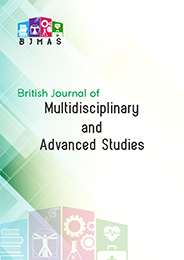Evaluating Teachers’ Formative Assessment Practices and the Promotion of 21st Century Competencies in Primary Schools
DOI:
https://doi.org/10.37745/bjmas.2022.04939Abstract
In the 21st century, globalization, technological advancement, and shifting societal needs have created a complex landscape that demands more than traditional knowledge. To thrive, individuals must possess essential competencies like problem solving, decision making effective communication and collaboration. The study investigates the relationship between formative assessment practices and the development of the 21st century competencies among learners. Using a descriptive survey research design, data was collected from 315 primary school teachers via questionnaire, selected through stratified sampling. Multiple regression analysis revealed a significant positive correlation between frequency of formative assessment practices, challenges, support and the development of 21st century competencies. Specifically, practices like project based assessment, practical work and multimedia projects enhance digital literacy, communication, creativity, life skills, critical thinking and physical wellbeing. The study recommends integrating multidisciplinary assignments, personalized learning pathway and technology facilitated cross cultural collaboration into assessment procedures to accommodate diverse learning styles and aptitudes. These findings have implications for educators, policy makers, stakeholders seeking to prepare learners for success in a rapid evolving world
Downloads
Downloads
Published
Versions
- 17-09-2025 (3)
- 17-09-2025 (2)
- 17-09-2025 (1)












